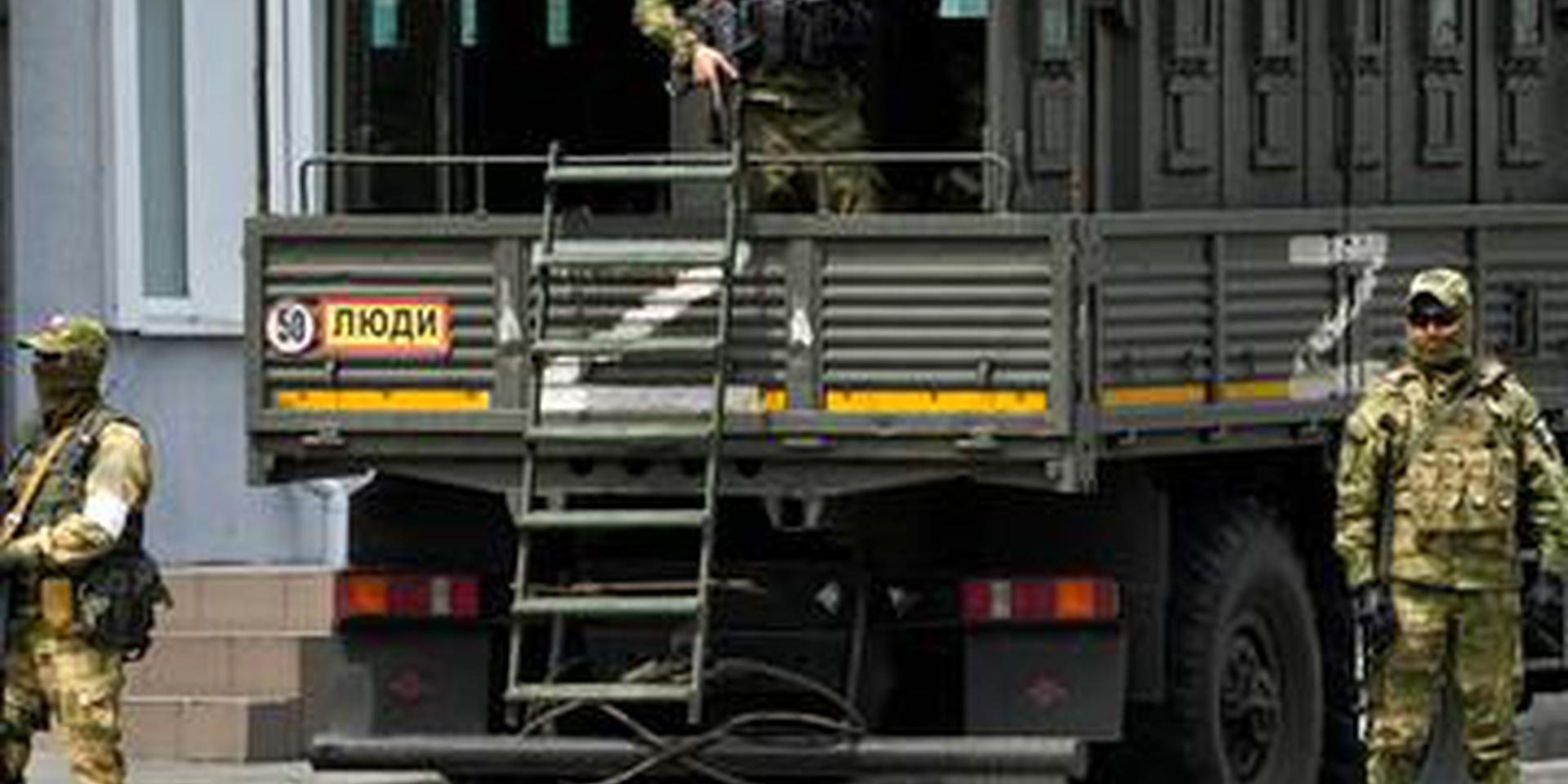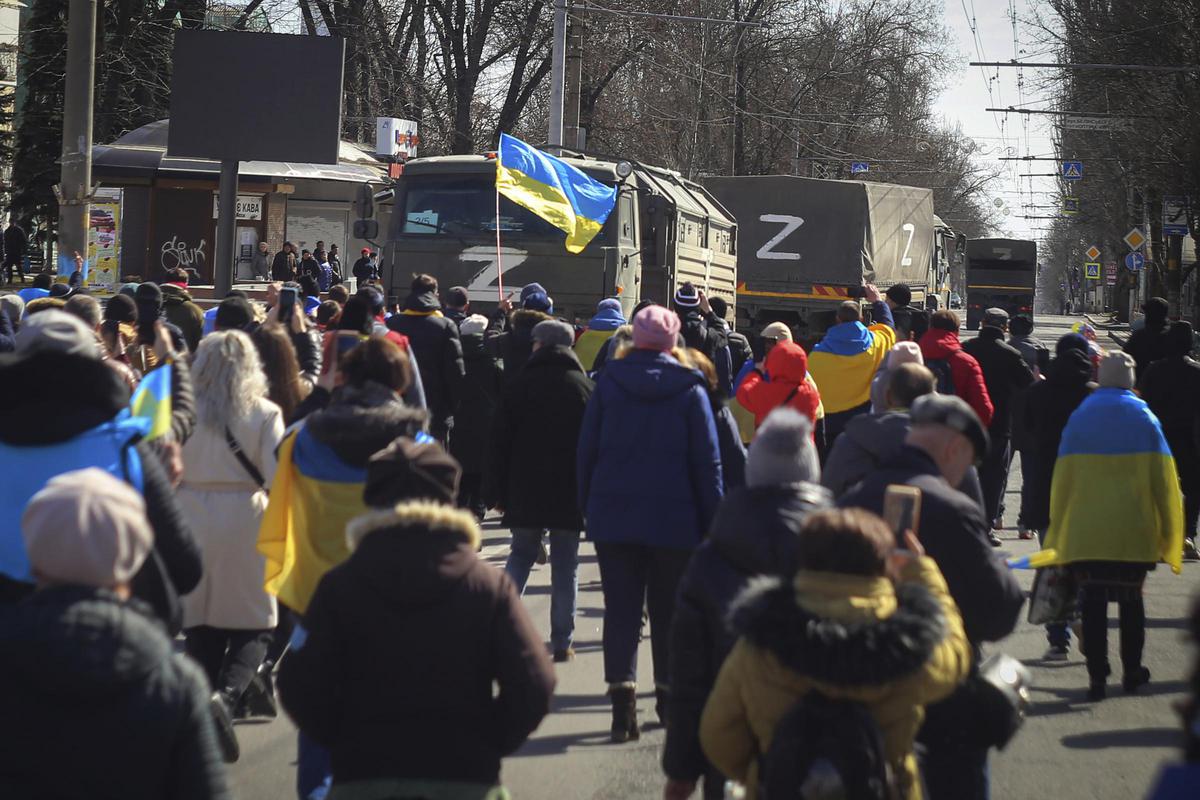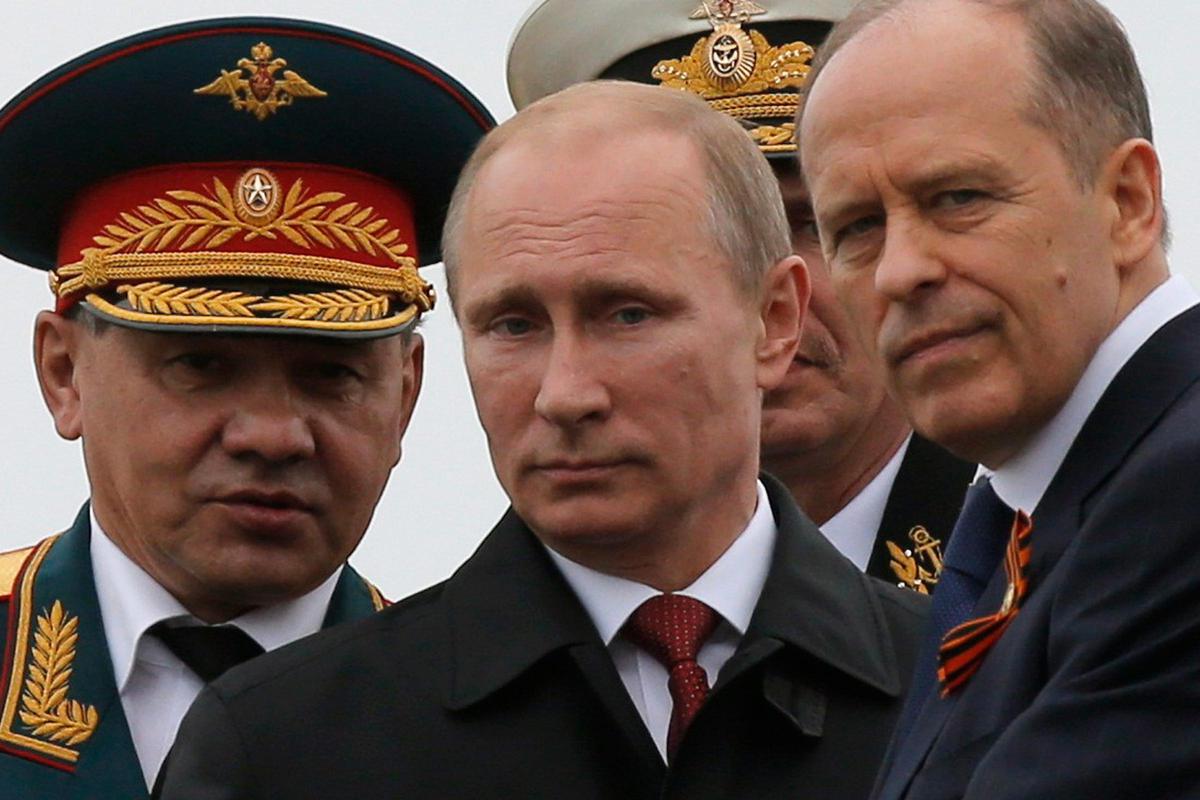Unfriendly Fire
How the son of a high-ranking FSB general went to Ukraine to become deputy governor of the occupied region, but ended up fleeing in disgrace — having escaped during a drunken shootout with his fellow countrymen

In mid-June, a shootout took place in the Eda.Topi cafe, located on the Dnieper embankment in occupied Kherson, Ukraine. Two Federal Security Service (FSB) officers and one contract soldier of the Russian army were killed. Another FSB officer and a serviceman from the Ministry of Defense were seriously wounded. A few days later, Aleksey Arestovich, adviser to the office of the President of Ukraine, stated that this was the work of Ukrainian partisans. Later, Yahoo News reported, citing a document from the Investigative Committee [the main federal investigating authority in Russia], that the shootout was the result of a drunken squabble between Russian servicemen.
Russian and Ukrainian media covered the incident, as did many leading media organizations across the globe. It seemed like the details of the incident were well known. One mystery remained, however — one that has contributed to still-present intrigue in the Moscow offices of high-ranking generals of the FSB, the Ministry of Defense and the Investigative Committee. Some do everything to keep the truth a secret; others, wanting to exact revenge on their opponents, want to disclose it.
This secret? It’s the name of another FSB officer who was also at the restaurant in Kherson that day. Documents from the criminal case published by Yahoo News describe his role in just one line: "An unidentified serviceman of the VOG-9 [temporary task force] of the Russian FSB fled the scene."
“He just got scared and ran away. Inside [the FSB], everyone knows who he is, but they’re doing everything so no one finds out his last name. Because this whole story is one big mark of shame. For him, and especially for his dad,” said a Russian intelligence officer familiar with the situation.
Important Stories has identified the man: He is the son of one of the most influential generals in the FSB.
Booze
The official version of the Kherson skirmish is laid out in a report from the Military Investigation Department for the Black Sea Fleet of the Russian Investigative Committee. On June 17, Igor Sudin, a 32-year-old native of Makhachkala, Russia, along with his colleague, 28-year-old Sergei Obukhov from the Russian village of Mugreevsky, Ivanovo region, were drinking at the Eda.Topi cafe along the Dnieper River in Kherson. Sudin is a senior operator of the unmanned aerial vehicle section of the artillery reconnaissance battery; his rank is junior sergeant. Obukhov is commander of the section of the sound-ranging reconnaissance platoon of the artillery reconnaissance battery; a sergeant. Both served under contract in the 8th Separate Artillery Regiment stationed in Simferopol, on the Crimean Peninsula.
A group of FSB officers were drinking in the restaurant at the same time. Among them were Dmitry Borodin, lieutenant colonel of the FSB’s Service for Economic Security (SES), and Igor Yakubinsky and Sergei Privalov from the Center for Special Purposes (CSP). “Data on the identity of the fourth serviceman of the FSB is being established,” the materials of the criminal case said.
Both parties "passed their time idly drinking liquor." At about 8 p.m. that evening, two FSB officers didn’t like the fact that the contract soldiers were drinking in military uniform and were in the restaurant with weapons; they were reprimanded.
The FSB officers had chosen the worst possible time and place for an argument. From the very first day Russian forces began their occupation of Kherson, they hadn’t been greeted by the local population with flowers and loaves of bread as was promised by FSB intelligence; instead, they faced a large-scale partisan movement. Russian military patrols came under constant attack at night, and residents of the city transmitted information about the deployment of the invaders to the Ukrainian army. In response, the Russian military initiated a reign of terror, kidnapping and torturing civilians.

“There [in the cafe] everyone was drunk. When the skirmish began, the contractors began to demand that they be shown documents, and our guys answered something in the spirit of ‘who are you exactly — go get some sleep.” One of the contractors then pulled out his gun and started firing at the floor, demanding documents; either he thought that it was DRG [sabotage and reconnaissance group], or he’d had more than his fill,” said an FSB officer familiar with the situation.
The one who pulled the pistol out of his holster was junior sergeant Sergei Obukhov. “After that, a member of the FSB, Privalov S.A., tried to snatch the pistol from Obukhov’s hands,” the criminal case documents say. Then Sudin decided to stand up for his fellow soldier: he grabbed an AK-74 assault rifle and opened fire on the offenders. They started firing back. Two FSB officers, Igor Yakubinsky and Sergey Privalov, as well as contract soldier Sergey Obukhov, died on the spot. Borodin and Sudin were wounded and sent to the hospital of the Ministry of Defense in Sevastopol.
Only one person remained uninjured: the “unidentified” FSB officer who escaped from the cafe.
General's son
The name of the FSB officer who escaped quickly became known among the security forces. Primarily, because of his notable last name. For that same reason, even anonymous telegram channels that write about special services were afraid to out him: “Second Security Service Lieutenant Colonel Dmitry Borodin was wounded in a Kherson cafe. His sidekick escaped the shootout. And now there’s a fierce struggle to forget the name of this secret man, and to whitewash the role of the SES - FSB,” wrote the Infobomba channel.
Two of IStories’ sources in the FSB, who are familiar with the details of the Kherson shootout, named this "secret man." It turned out to be Evgeny Tikhonov, the son of famous FSB Colonel General Alexander Tikhonov.
From 1998 to September of this year — almost 25 years — the elder Tikhonov headed the FSB Center for Special Purposes. The CSP was created on the basis of the legendary Alfa and Vympel special forces units. For many years, Tikhonov remained one of the most closed-off and influential generals of the FSB. In September of this year, he was dismissed from military service upon reaching the age limit (70). This happened just a couple of months after the drunken shootout in Kherson, but IStories sources insist that Tikhonov was going to leave even before this news.
The younger Tikhonov serves in the SES, in its "P" department, which oversees Russian industry. From the very beginning of the war, the FSB sent its agents to Ukraine to engage in operational work in the occupied territories. For some FSB officers, however, these business trips have become an excellent opportunity to earn money — in Ukrainian cities there is a lot of abandoned property and assets that can be seized — and to advance in the Service, as well. According to an FSB officer familiar with the situation, Evgeny Tikhonov went to Ukraine “to become deputy governor of the Mykolaiv region. On the advice of his dad.”
Tikhonov’s career plans were first impeded by the army of Ukraine, which didn’t allow the Russians to take the administrative center of the region, the city of Nikolaev. The hopes of the general's son for a high position were then finally buried by the shootout in the restaurant in Kherson. On top of this, among the security forces it isn’t so much the fact that drunken FSB officers were involved in a shootout with drunken contractors that is condemned, but the cowardly — according to colleagues — behavior of Tikhonov: he ran away from the restaurant, leaving his comrades. “He later said that he actually ran for help, but who will believe it now,” lamented an IStories source in the FSB.

This incident aggravated the raging undercover war ongoing between the Ministry of Defense and the FSB. Both departments accuse each other of incorrectly informing Russian leadership about the strength of the Ukrainian army and the mood within Ukrainian society, which have contributed to the failure of the Russian offensive. In addition, according to IStories sources, the Department of Military Counterintelligence, which oversees the Ministry of Defense, collected "tons of materials" to initiate criminal cases on mass theft in the Russian army on the eve of the war. But the Kremlin has yet to release these materials.
After the shootout, both sides of the conflict — the FSB and the Ministry of Defense — attempted to influence the Investigative Committee in order to sway the investigation to their side. The Investigative Committee eventually chose the side of the FSB: Sudin became the key defendant in the criminal case.
Privalov, whom Sudin had killed, was buried in Petropavlovsk-Kamchatsky. “He died in the line of military duty,” a local newspaper wrote about his death. Obukhov was buried in Crimea, where he left behind his wife and six-year-old son.
The news portal 168.ru from Obukhov’s native Ivanovo region described his death as follows: “On June 17, 2022, the commander of the sound-ranging intelligence department, Sergeant Sergey Obukhov, died while performing military service in the territories of a special military operation in the LDNR. During the fighting, he showed courage and bravery. At the cost of his own life, he saved his comrades, who, thanks to his feat, were able to get out of an encirclement.”